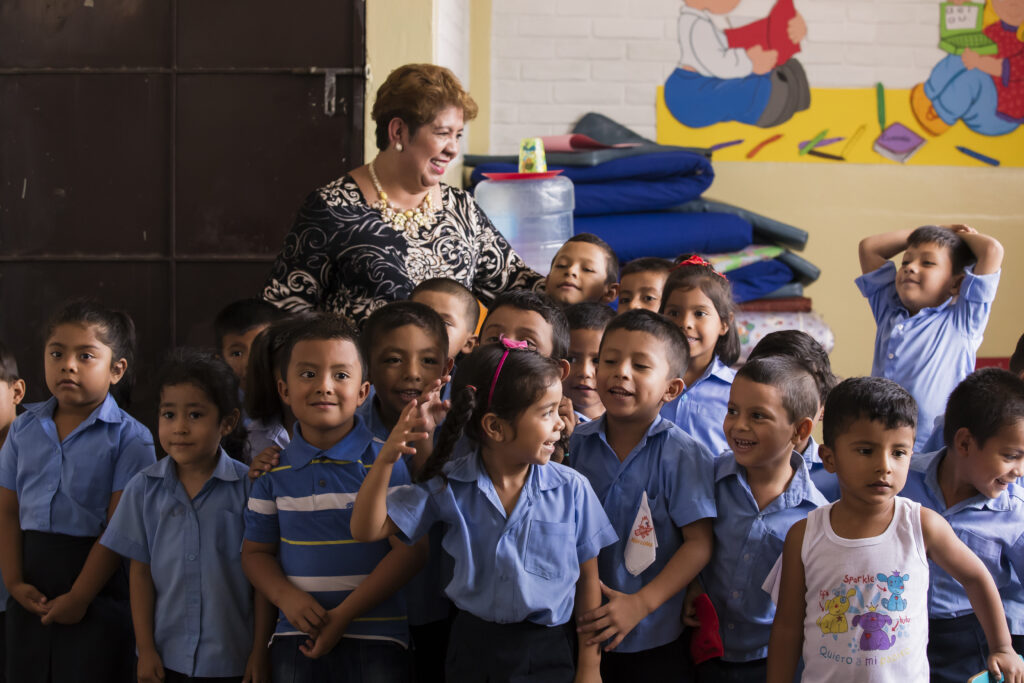Classrooms are a reflection of their immediate community and larger society, and the Social-Emotional Learning (SEL) that teachers engage students in can promote lasting peace. This is particularly important in conflict-affected contexts where students need additional support and space.
Skills such as self-awareness, self-regulation and positive interactions with others are foundational to contribute to peaceful ways of dealing with conflict and disagreements. When we are aware of our emotions, we tend to handle conflicts in a calmer and more rational manner, but we need more. Developing critical thinking and emotional intelligence can also help separate the person from the issue during conflict as a first step to resolve it.
Going beyond self-awareness and interpersonal skills, SEL can include empathy and forgiveness — essential ingredients for learning to live in peace.

The role of empathy and forgiveness in lasting peace
Empathy gives us the cognitive and emotional capacity to imagine oneself in the place of another, serving as a cure and antidote to extreme individualism and the lack of a collaborative community.
It is at the core of many of the life skills we teach and predicts our ability to forgive, be community oriented and have a hopeful outlook on the future. By learning these skills, along with problem solving and emotional understanding, we can create a learning environment where bullying and solving problems with violence are not options. This is a place where differences are acknowledged and celebrated.
Empathy is a crucial step towards standing in solidarity with marginalized and underprivileged communities.
An empathetic person can reach out to people who need both human solidarity and concrete assistance to reduce their suffering. This could be a family member, a neighbor or a classmate. Instilling human empathy in our younger generation is a necessary condition to prevent discrimination, prejudice and all other destructive actions motivated by the dehumanization of others.
Incorporating SEL in the classroom
It is crucial to prioritize teaching life skills such as empathy and forgiveness in education to ensure lasting peace. And teachers around the world can model peaceful living by creating classroom environments free from fear and anxiety.
While implementing education for lasting peace may require resources, even schools in conflict areas and economically underdeveloped contexts can engage in education for peaceful living with minimal resources. Even with few resources, we must first address the willingness and commitment of school systems to engage in such processes and integrate them into the curriculum.
Teachers can start by intentionally making space for students’ emotions and verbally expressing them during the school day. They can teach peace by refraining from physical punishment as a discipline method and model that to parents. Teachers and school leaders can teach for lasting peace by creating an empathetic school agenda and a respectful school community that does not shy away from those who are different.
We can all play our part to integrate SEL and take it to a deeper level in schools to foster lasting peace within individuals, communities and societies. By teaching skills such as self-awareness, self-regulation, empathy and forgiveness, educators can equip students with the tools to handle conflicts peacefully and promote understanding and acceptance of others, even with few resources.
Creating an empathetic and respectful school environment, where emotions are acknowledged and differences celebrated, contributes to a culture of peace and prepares students with the necessary skills to cope with the challenges of life.
Ilham Nasser is the MENA Senior Technical Advisor for Creative’s Education Division.

